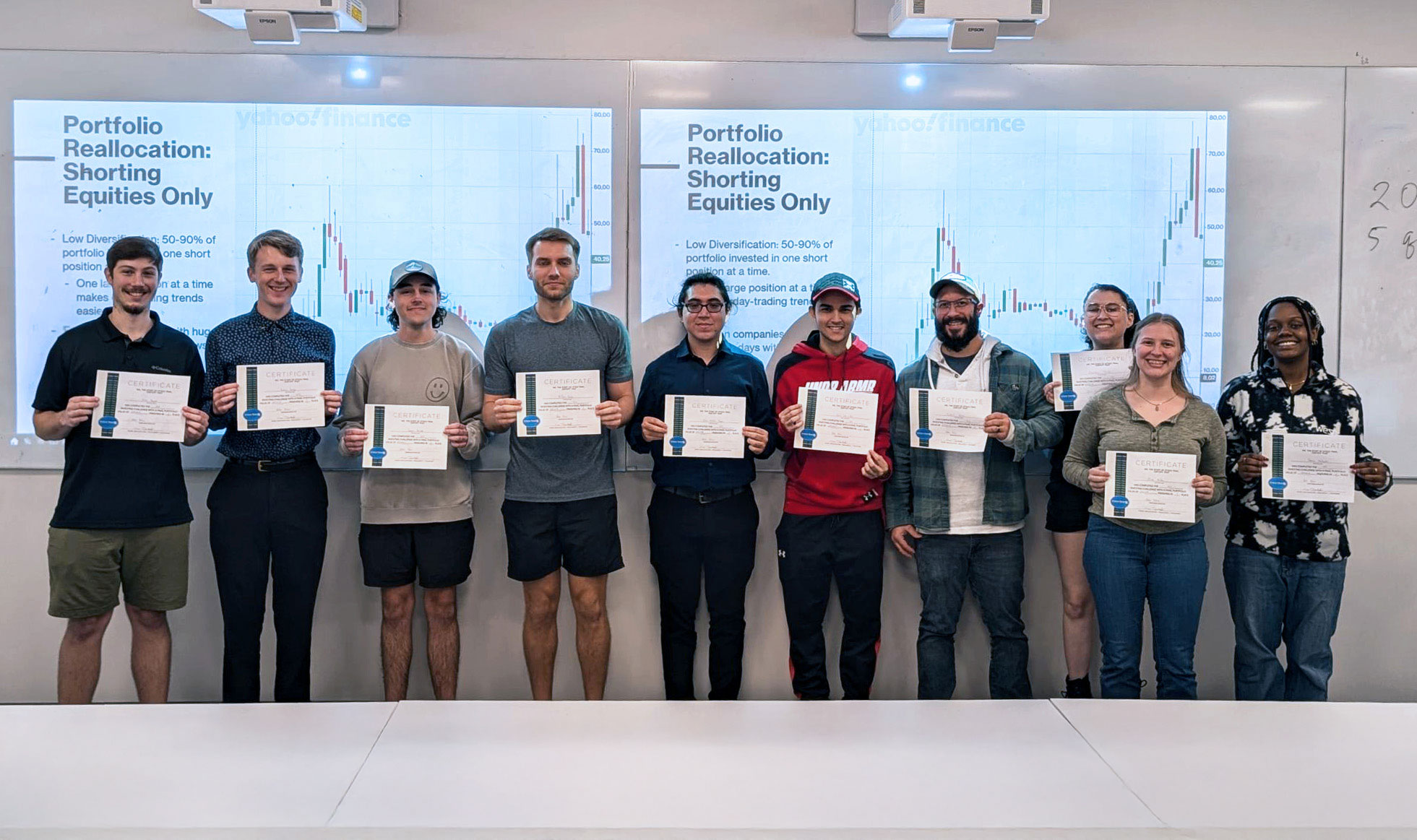
Students in a new investments, financial modeling and analytics course at Florida Polytechnic University show their certificates after completing a monthslong virtual investment challenge, where they worked to maximize a $100,000 portfolio.
With $100,000 in virtual funds to invest, teams of Florida Polytechnic University students are taking a hands-on approach to learning financial markets this semester.
A new investments, financial modeling and analytics course at the University incorporates TD Bank’s Virtual Stock Market Simulation Game, challenging students to strategize the best ways to grow their portfolios and build a heftier balance than their peers.
“Our students have great technical skills, and they did much better than others I taught at a previous university,” said course instructor Dr. Artem Malinin, assistant professor in the Department of Data Science and Business Analytics. “All of them finished with increased balances despite markets being far from stable through the period of August to November 2024, and that by itself was really impressive.”
At the head of the pack was a team that dramatically transformed its investment strategy, taking it from last place to first by the time the investment challenge ended.
“We started off by going with traditional company options you would think of for a long-term investing approach like Coca-Cola and Starbucks, and then we realized if we really wanted to pull into first place, we needed to take some more risky choices,” said Simon Pringle, who is graduating with a bachelor’s degree in business analytics this December. “To turn that around, instead of investing in stable companies, we started shorting risky ones, which is basically going against the consensus and you’re looking for companies that if their stock price goes down drastically, you can make money.”
Short selling can backfire because if the stock price increases instead of decreases, investors can face significant losses. This team’s strategy paid off though, leading to an ending total of $158,000.
Malinin said some students were unfamiliar with many of the investment vehicles used such as bonds, mutual funds, and hedge funds when the course started, but became savvy in short order and are now ready to begin applying their new investment knowledge to the real world.
“Some students eventually even asked me to change conditions of the challenge so they could invest internationally in different markets and could try more instruments,” he said. “I am very pleased with how well they did, and I know they have the potential to begin great careers with really high salaries after they graduate.”
Malinin is hopeful the challenge will expand as students learn how it can give an edge to their future financial investments – both personal and professional.
“Hopefully, one day we can even do a University-wide tournament,” he said.
Contact:
Lydia Guzmán
Director of Communications
863-874-8557